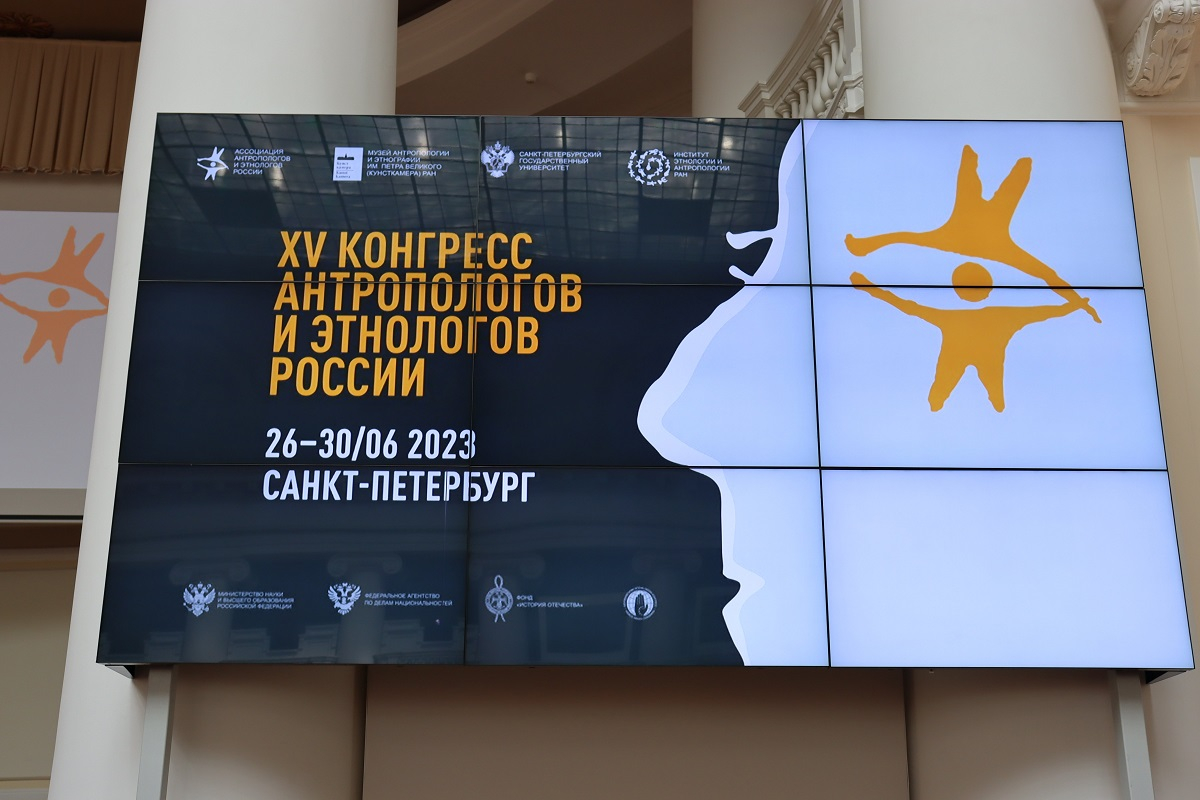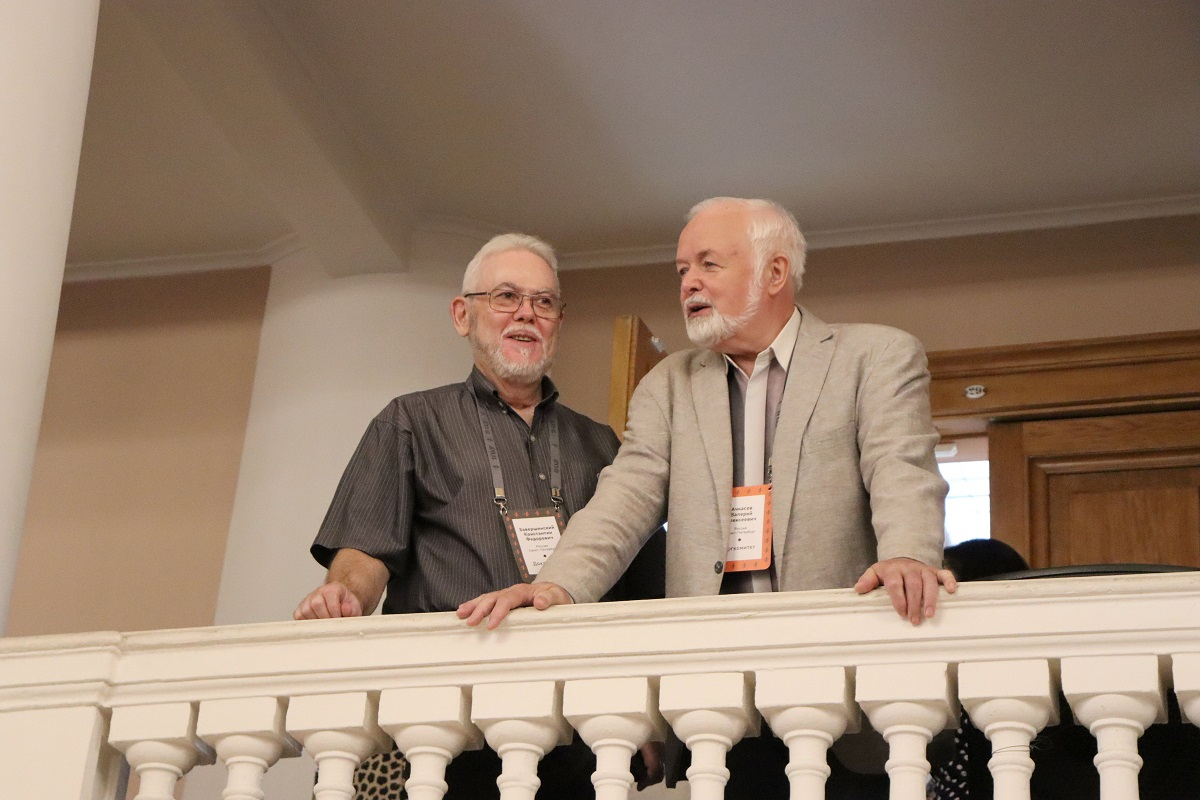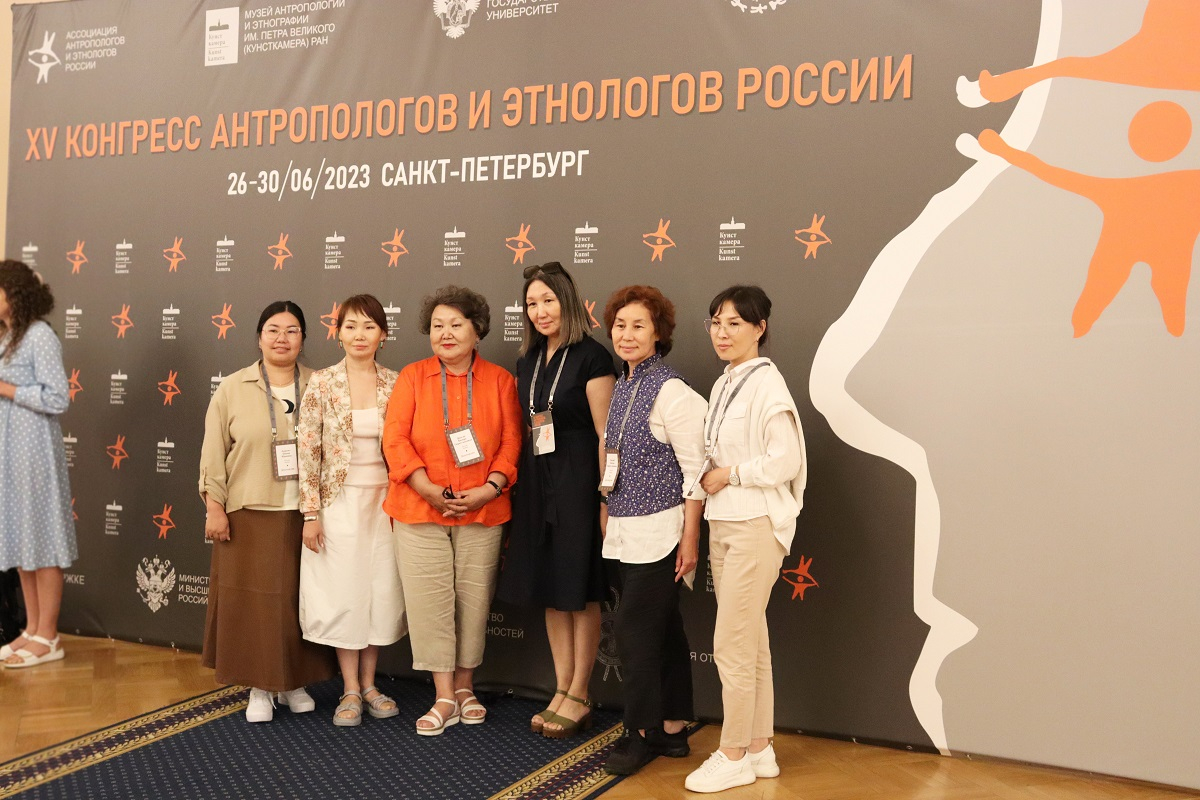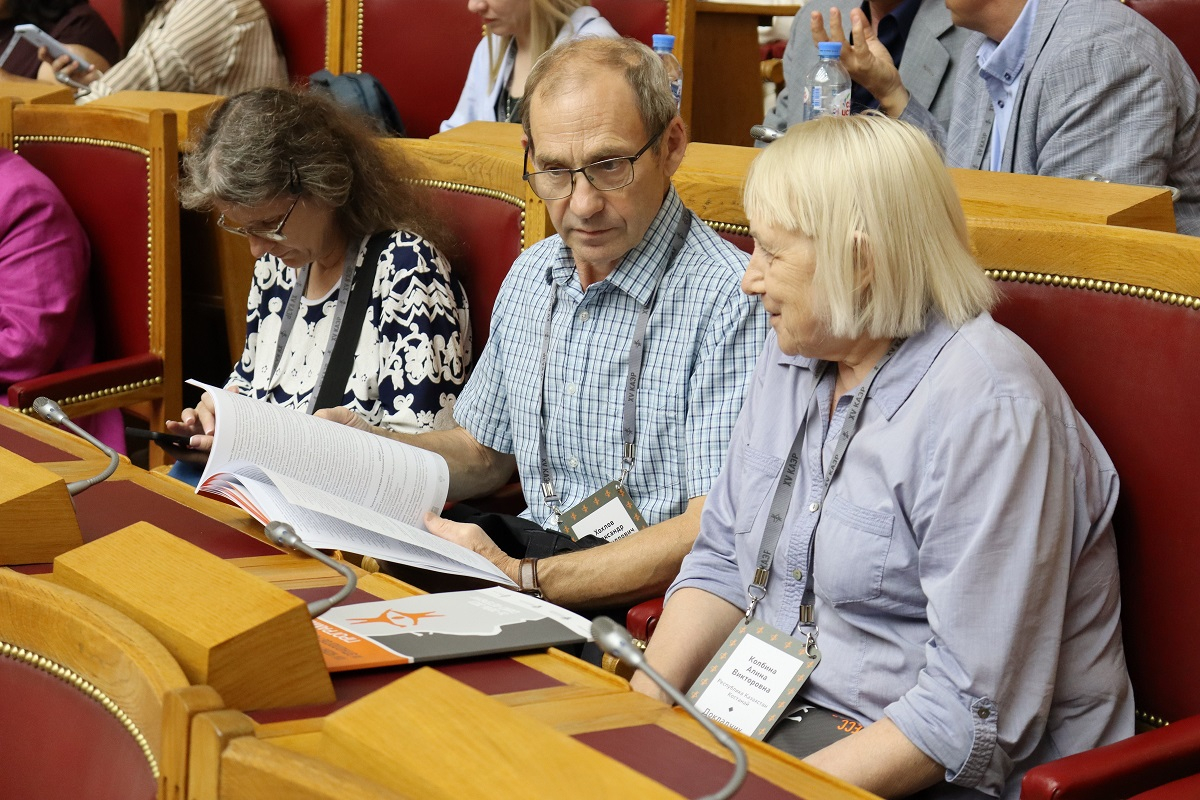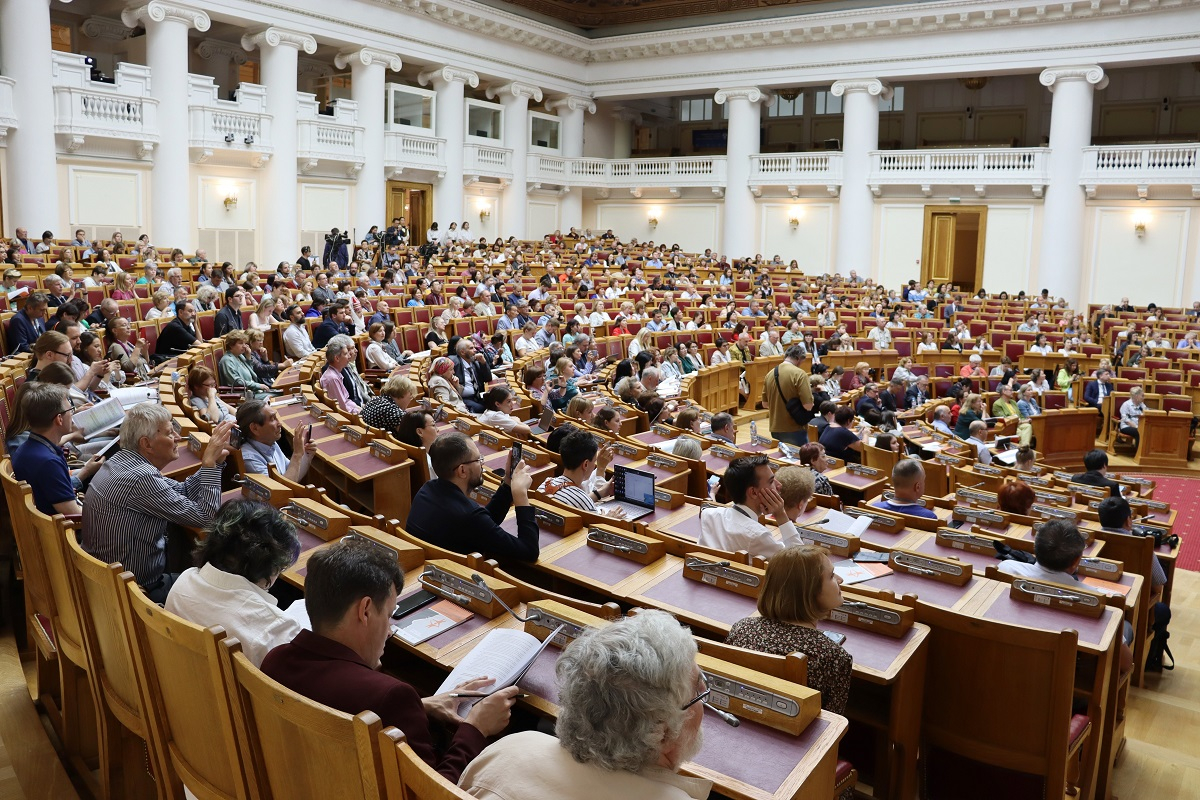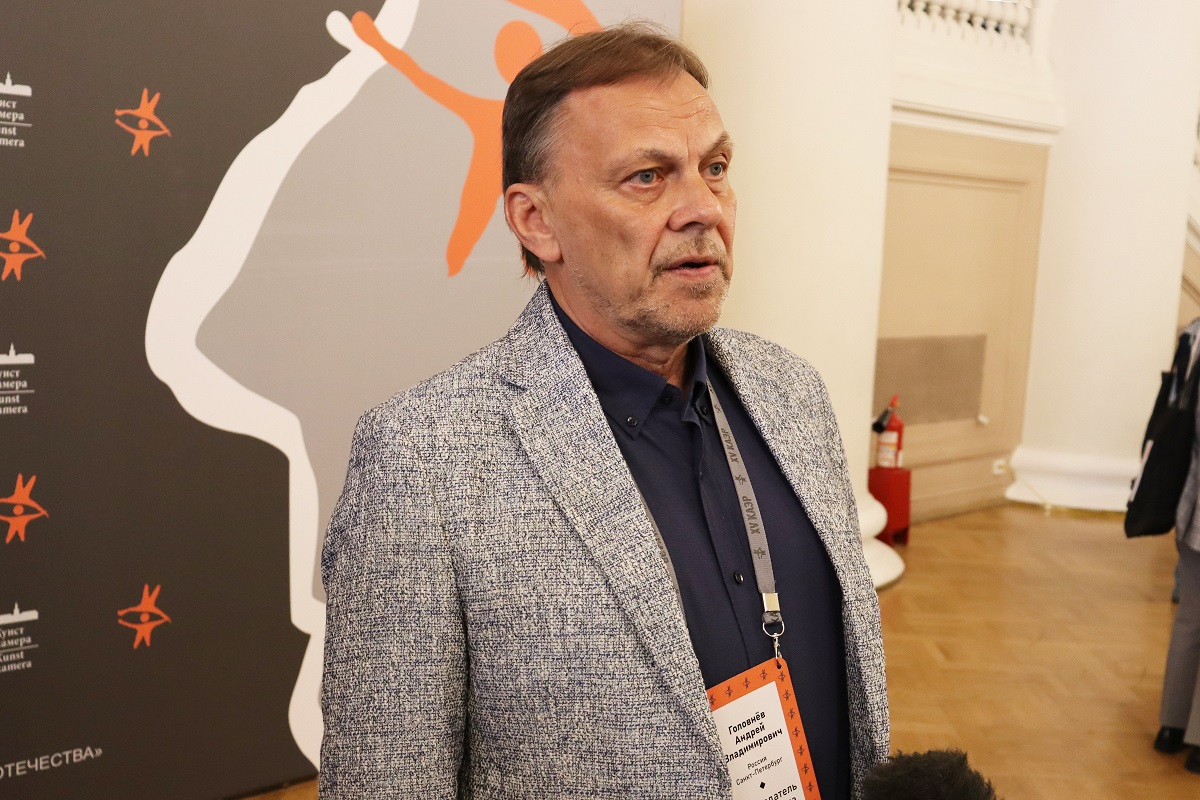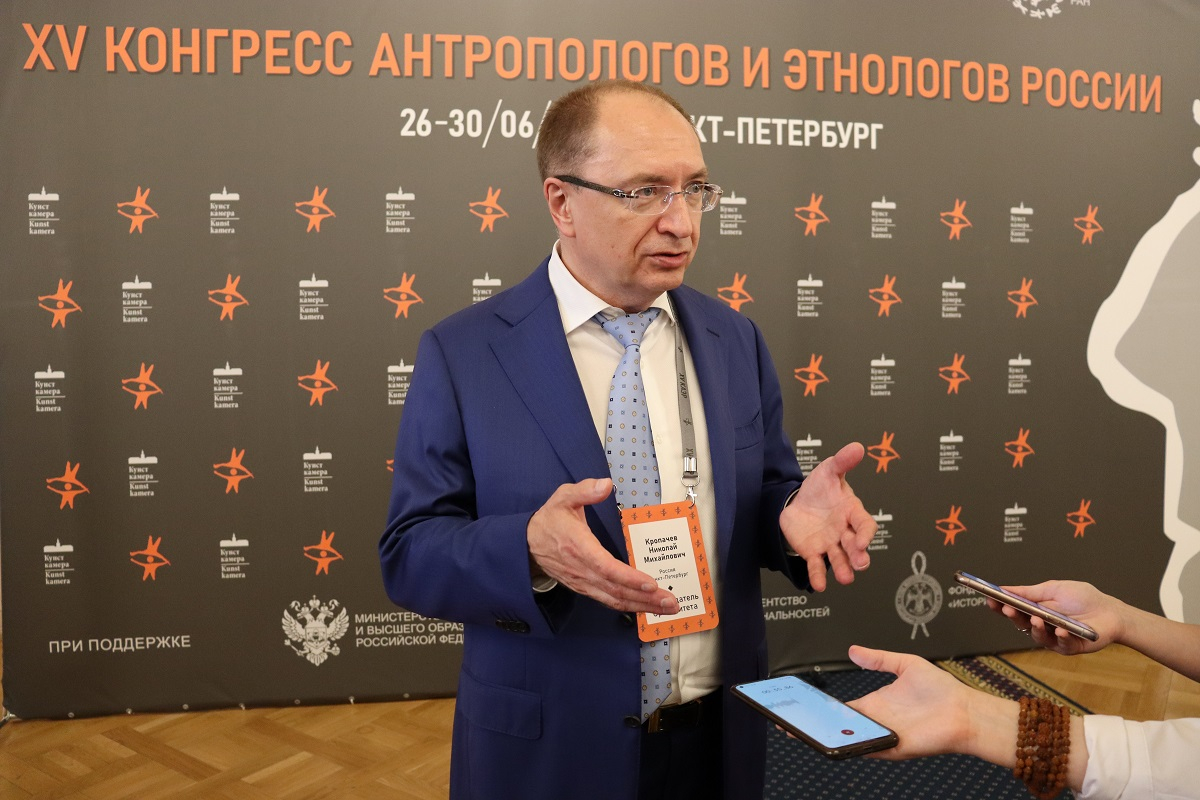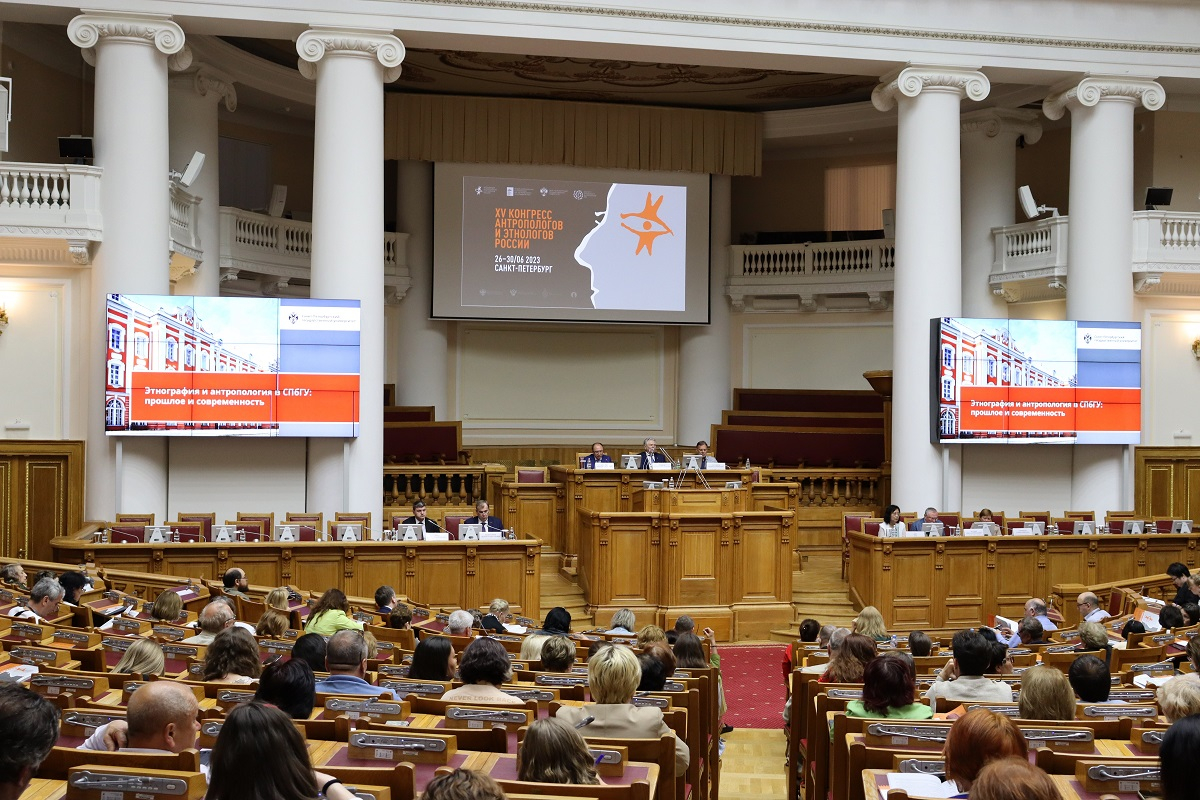St Petersburg University plans to open an institute for the study of the ethnocultural heritage of Russia
St Petersburg has held the 15th Congress of Anthropologists and Ethnologists of Russia. Among the organisers of the congress was St Petersburg University. The plenary session focused on the history of the Russian humanities and discussed the issues of interdisciplinary cooperation and problems of the modern educational process in the field of anthropology.
The members of the St Petersburg University Board of Trustees discussed the importance of anthropological and ethnological knowledge and expertise for strengthening state unity, ensuring the territorial integrity of Russia, and preserving its identity. Among the members of the St Petersburg University Board of Trustees were the following: Dmitry Chernyshenko, Deputy Prime Minister of the Russian Federation; Alexander Beglov, Governor of St Petersburg; Valery Falkov, Minister of Science and Higher Education of the Russian Federation; Gennady Krasnikov, President of the Russian Academy of Sciences; and Magomedsalam Magomedov, Deputy Head of the Presidential Administration.
Today, the congress is considered as one of the key platforms that is set to contribute to the preservation of the cultural and linguistic diversity of Russia and the harmonisation of interethnic relations.
Igor Barinov, Head of the Federal Agency for Ethnic Affairs of the Russian Federation
‘The congress presents the research results and achievements in the theory and methodology of ethnic studies. It also raises highly problematic issues that require study and search for solutions, and focuses on new fundamental and applied research areas that are much-in-demand,’ said Igor Barinov, Head of the Federal Agency for Ethnic Affairs of the Russian Federation.
Valery Tishkov, President of the Association of Anthropologists and Ethnologists of Russia and Member of the Russian Academy of Sciences, addressed the researchers from different regions of the country with a welcoming speech. ‘For a multinational state, it is important to have a professional, solidary and civilly responsible community of researchers. It should contribute to the preservation and development of the culture of the peoples of our country and to the establishment of interethnic harmony in the cultural diversity of Russia and the world,’ said Valery Tishkov.
The 15th Congress of Anthropologists and Ethnologists of Russia is set to mark the 300th anniversary of the Russian Academy of Sciences and St Petersburg University. The research forum brought together more than 1,000 researchers from all regions of the Russian Federation and 100 international researchers from Armenia, Belarus, Kazakhstan, and China to name just a few. The congress included 54 sections, seven round tables, and presentations of new books and scientific journals.
Among important topics for discussion was the issue of preparing high-calibre professional staff, early-career researchers, and specialists in the field of ethnography and anthropology. Nikolay Kropachev, Rector of St Petersburg University and Corresponding Member of the Russian Academy of Sciences, announced plans to open a new institute that would bring together all researchers involved in ethnography and anthropology, i.e. historians, sociologists, lawyers, political scientists, philosophers, and linguists.
In his speech, Nikolay Kropachev also spoke about: the process of developing a systematic approach to ethnographic education at St Petersburg University; the increasing role of practice-oriented disciplines in the study of cultural characteristics and the linguistic heritage of the peoples of Russia; and the expanding variety of areas of study: from physical anthropology to ethnological expertise.
The penetration of anthropological thinking, ideas and concepts into the context of sociology, philosophy, political science and law and vice versa has produced good results. Today, the University continues to develop ethnographic and anthropological education and is determined to work in a wide range of areas.
Nikolay Kropachev, Rector of St Petersburg University
There is a need to create ethnographic museums in various regions of Russia, which will contribute to the development of research traditions and the preservation of cultural diversity as a feature of a multi-ethnic state, said Nikolay Kropachev. ‘Such museums can be opened at universities in every region. It is necessary to open the doors of institutes and universities to ensure that their museum collections are available to people,’ added Nikolay Kropachev. ‘St Petersburg University is ready to support the regions and share its experience in this area not only with the professional research community, but also with a wide audience.’
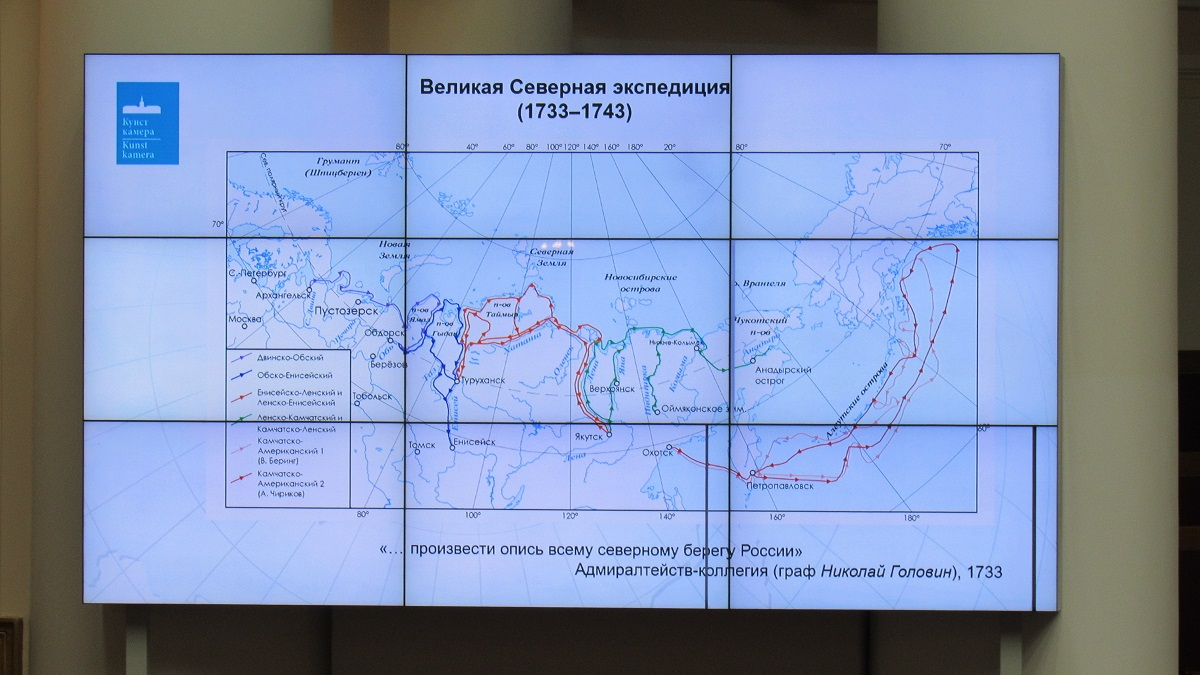
Andrei Golovnev, Director of Peter the Great Museum of Anthropology and Ethnography (the Kunstkamera) of the Russian Academy of Sciences and Corresponding Member of the Russian Academy of Sciences, spoke about the role of the North in the study of Russian history, the development of public consciousness, and the formation of statehood. ‘We can confidently call ourselves people who cannot live without ethnography, without a study of a particular human society. Russia, with the very beginning of the process of gaining self-knowledge, has been referred to as a country that is rich in its peoples, and “northernness” is something that cannot be taken away from it. This concept also makes it possible to identify the place of Russian society in the global context,’ Andrei Golovnev said in the plenary report ‘Projections of Northern Studies’.
Not only researchers from various Russian regions, but also representatives of friendly countries took part in the discussion of the current issues in the development of the research world in the field of ethnography and anthropology. Ms Ding, Vice-President of the Chinese Association of Ethnology, spoke about the academic ties between the two states and the influence of the Russian school of ethnography on the development of ethnology in China.
‘Our countries are multinational and have close historical ties. It is essential for us to learn from each other and share our experiences and achievements. The Soviet school played a fundamental role in the formation of Chinese ethnology, so it is important to continue to open new horizons,’ said Ding Hong, an expert at the Central University of Nationalities.


